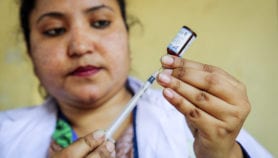By: Katie Mantell
Send to a friend
The details you provide on this page will not be used to send unsolicited email, and will not be sold to a 3rd party. See privacy policy.
H.E. Supachai Panitchpakdi, the next director-general of the World Trade Organisation (WTO), has said that he is prepared to “introduce some forward-looking changes” to allow both rich and poor countries to benefit from the intellectual property rights system when he takes office on 1 September 2002.
Speaking in at a conference in London last week, Supachai said that he aims to change some “asymmetrical consequences” of previous negotiations on intellectual property rights and hopes to “bring the WTO into serving all members alike”.
He acknowledged that the WTO has been criticised for putting the interests of multinational firms before countries and called for the need “to have more national interests in mind” when discussing the future of the Trade-Related Aspects of Intellectual Property Rights (TRIPS) agreement.
TRIPS — one of the most contentious elements in the debate over the impact of patents and patent laws — is a legally-binding agreement that requires all WTO member states to establish minimum standards of legal protection and enforcement for a set of intellectual property rights.
Supachai said that the costs of introducing the TRIPS agreement in developing countries must be cut.
He also called for a “programme to increase understanding” of intellectual property rights in parliaments and at the grass roots level across the world. “Poor countries are not well informed in making use of the provisions in TRIPS. Sometimes they don’t know how to bring flexibilities into their own laws,” he said.
But other speakers demanded more fundamental changes, such as allowing the least developed countries to be exempted altogether from TRIPS.
“By trying to co-opt farmers (in the developing world) into the patent system, we may be squeezing people into an inappropriate system,” said Martin Khor, director of the Third World Network (TWN), an international network of non-governmental organisations.
Khor said that the “one-size-fits-all” system of intellectual property rights established in TRIPS, where similar standards are set for countries of differing levels of development, is a great disservice to the world’s poorest nations.
Many present-day developed countries did not adopt intellectual property rights legislation when they were going through the stages of development that the poorer countries of today are attempting to go through, he said.
The two-day conference, entitled “How intellectual property rights could work better for developing countries and poor people”, was organised by the Commission on Intellectual Property Rights. The Commission was set up by the British government to formulate policy recommendations on intellectual property rights and international development.
© SciDev.Net 2002













